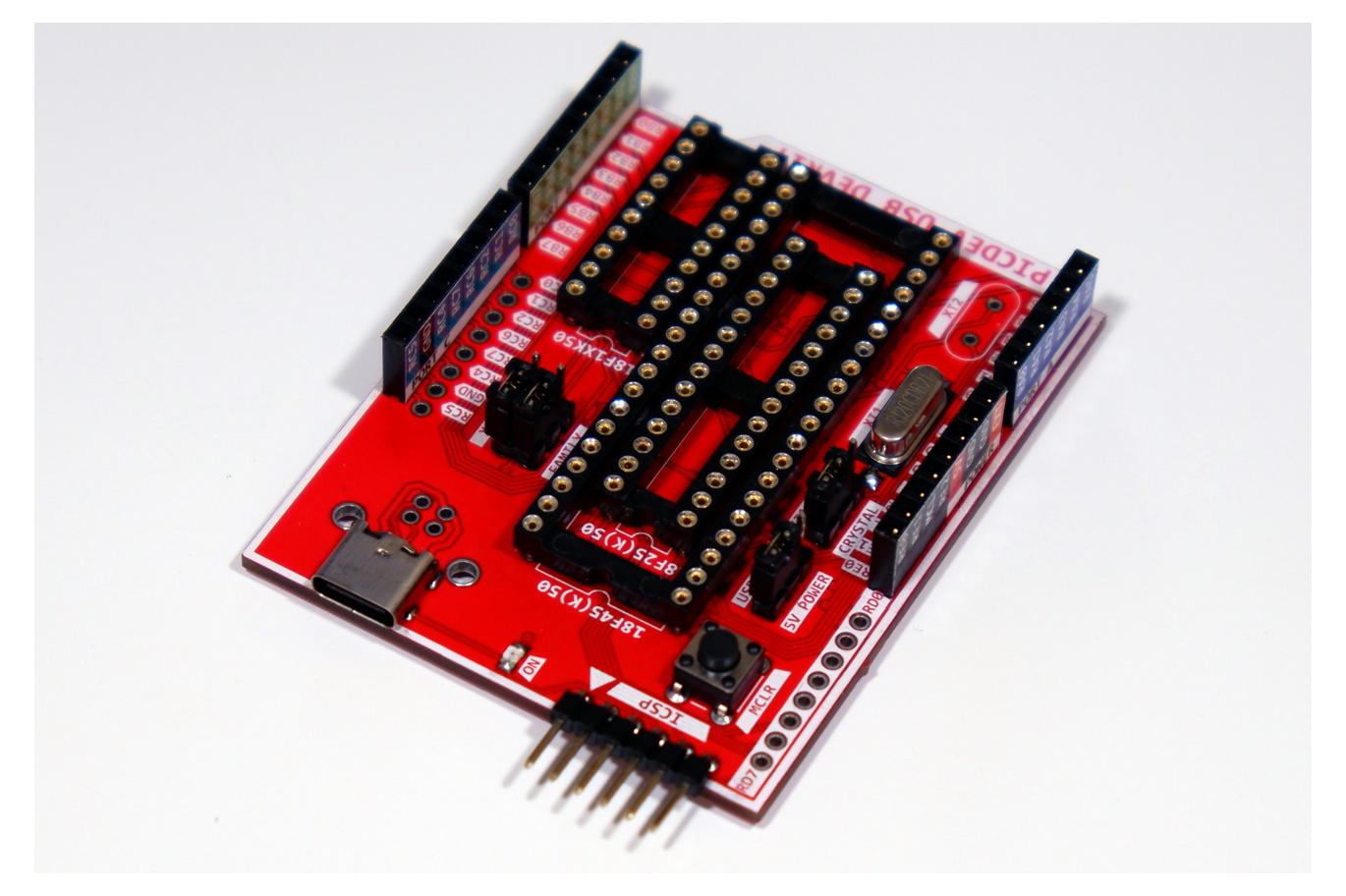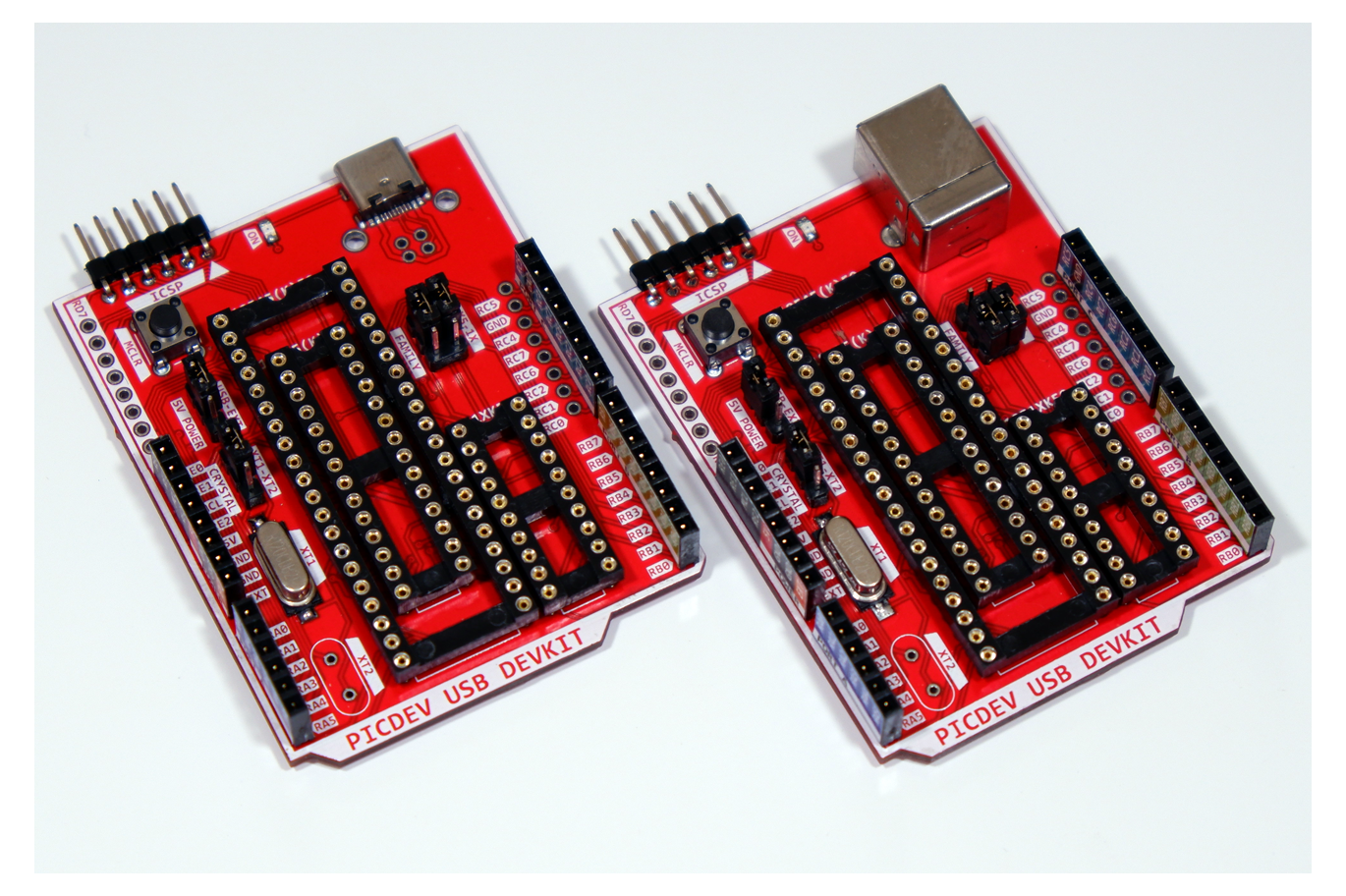With This Uno-Compatible Development Board, Choose Your PIC. Make use of the robust PIC18F microcontrollers in a well-liked form factor.
The PIC microcontroller used to be the standard choice for developing prototypes quickly. However, the Arduino ecosystem replaced them because of their combination of functionality and affordable price. An essential feature of an Arduino-compatible board is being pin-compatible with the Uno's physical factor. Due to the popularity of the Uno form size and the capabilities of the PIC18F, MH-EDU-Electronics created the PICDEV USB, an incredibly versatile Uno-compatible PIC development board.
PICDEV The physical design of the USB resembles that of the Arduino Uno. The pin headers share the same area and (for the most part) work similarly to Uno pins. But if you look closely at the board, you can see that the development kit is missing something. A microprocessor chip does not exist.
The 20-, 28-, and 40-pin through-hole versions of the Microchip PIC18F family are supported by this devkit. You can select the one that best suits your application even though the board can only accommodate one of these chips at once. Along with that, it offers more freedom.
For instance, a 12 MHz crystal oscillator is included inside the device. But you may also use a jumper to switch between a second oscillator and the original one. You may select another jumper to feed the 5-volt rail through USB or external power. There is no voltage regulator for voltages greater than 5 volts, in contrast to Arduino boards.
You also have the option of using a USB Type-C or Type-A connection. As opposed to the Uno, which required a separate chip to provide the USB-to-Serial interface, the PIC18F has native support for USB.
Compared to the Uno form factor, there are some changes. For instance, the absence of an on-board regulator is one distinction that has previously been highlighted. The ICSP header is on an edge, which is another distinction. Due to this arrangement, the board's midsection does not have a six-pin header. This header is used by some shields to access SPI signals.
PICDEV USB connects the PIC18F family to the Arduino-compatible shield environment despite these slight variations.
Before shipment, the cost of a PICDEV USB starts at $19.99. For an additional fee, the USB port may be changed, and the board can arrive with a PIC microprocessor. Visit the
PICDEV USB product page on Tindie for additional details.













